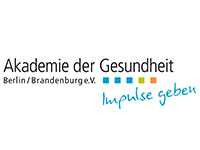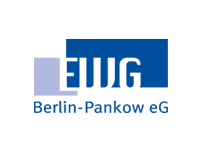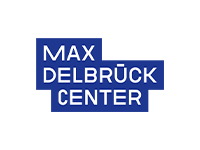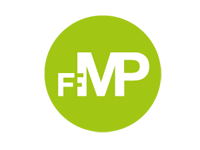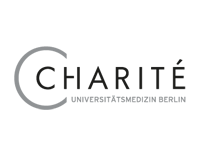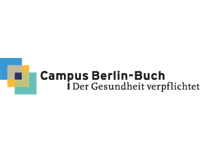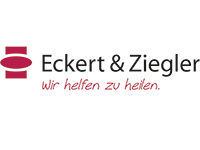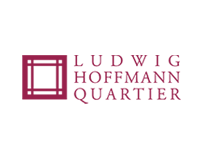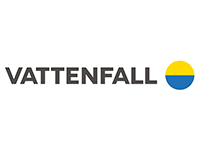Your selection
Research, Innovation, Patient care, Education / 15.04.2024
From cell biology to CRISPR/Cas – new knowledge for schools
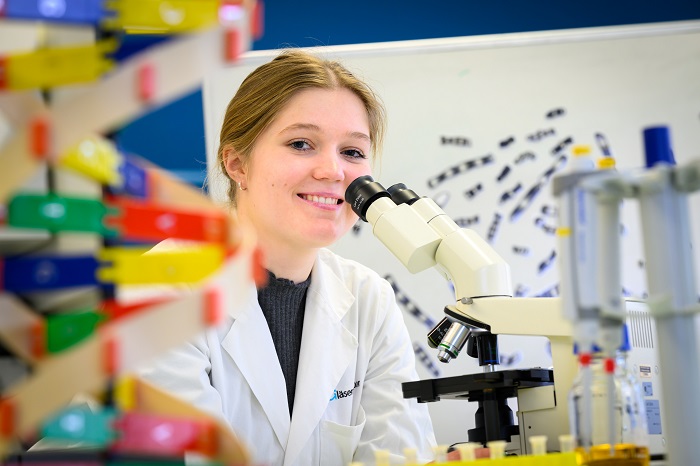
The Life Science Learning Lab at the Berlin-Buch research campus offers both school students and teachers the opportunity to immerse themselves in science. This year, the facility celebrates its 25th anniversary
A white coat is more than just a protective garment. It is a symbol. Claudia Jacob, who heads the Life Science Learning Lab at the Berlin-Buch research campus, has often observed this phenomenon. Each year, some 14,000 school students and teachers visit the learning laboratory in the green setting in the north of Berlin. “They take on a different role when they put on their lab coats,” remarked Claudia Jacob. “Their curiosity seems to be awakened in an instant.” In the late 1990s, the founding director of the Max Delbrück Center, Professor Detlev Ganten, had the idea of establishing an information center to keep citizens abreast of developments in genetic engineering and biotechnology. The aim was for visitors to be able to look over the shoulders of scientists working in the lab. But Dr. Ulrich Scheller, then head of the public relations team at Campus Berlin-Buch GmbH (CBB) and now one of its managing directors, knew that just watching was not enough. The biochemist is convinced that “if you want to get people excited about research, you have to give them a chance to work with pipettes and test tubes.” And so the concept was revised.
In April 1999, after three years of renovation, the Life Science Learning Lab opened its doors as a student lab in the listed carriage house on the research campus.
More than 20 different courses
It all began with four molecular genetics experiments. Today, 25 years later, there are six laboratories in all, making it one of the largest facilities of its kind in Germany. The CBB runs the Life Science Learning Lab together with the Max Delbrück Center and the Leibniz-Forschungsinstitut für Molekulare Pharmakologie (FMP); they are supported by numerous sponsors and partners, including the campus-based company Eckert & Ziegler, a provider of isotope technology for medical, scientific and industrial use. Together, they offer more than 20 experimental courses covering topics such as molecular biology, cell biology, neurobiology, chemistry, radioactivity and ecology. “We are one of the few student labs in Germany where young people can even conduct experiments with CRISPR-Cas9 gene scissors,” remarked Ulrike Mittmann, scientific leader of the Molecular Biology Laboratory. Since molecular biology involves working with cells and pathogens or genetically modifying organisms, strict safety regulations apply. Schools, unlike the Life Science Learning Lab, cannot adhere to such strict regulations. As a result, the facility is a vehicle for exposing young people to current research topics.
Something for everyone
The Forschergarten at the Life Science Learning Lab also caters to young children of elementary school and kindergarten age. Moreover, there are working groups for school students, vacation courses, lectures and laboratory courses to prepare students for college. Teachers attend professional development sessions to learn about newly designed courses in the Life Science Learning Lab. In the “Lab meets Teacher” format, the Max Delbrück Center also offers teachers insights into current research topics and methods, such as single-cell analysis and Artificial Intelligence in biomedicine. Together with the Max Delbrück Center, the FMP and the Experimental and Clinical Research Center, the Life Science Learning Lab organizes the regional competition “Jugend forscht” Berlin-Brandenburg – most recently in February of this year. A total of 95 school students presented their projects at the Max Delbrück Communications Center and were given an insight into the research facilities and the Student Lab on the campus during the supporting program. “Fostering young talent is the primary goal of the Life Science Learning Lab,” commented Ulrich Scheller. “In addition to providing basic knowledge for all, we also support high-achieving school students to prepare them for a career in science or the life sciences sector.” After all, young talent is in short supply everywhere, including research labs. That is why it is important to encourage young people to train or study in this field, said Scheller. His co-managing director Dr. Christina Quensel added: “We want to show young people that researchers do not focus on abstract issues that no one else understands, but that their work affects society as a whole.” That is why ethical issues are on the agenda alongside the school curriculum. For example, why are animal experiments necessary, why should we be particularly cautious about stem cell therapies, and what does a genetic fingerprint reveal about a person? Both researchers and students benefit from this face-to-face interaction. “It is important that scientists occasionally come down from the ivory tower of basic research and explain their work in a way that is easy to understand,” stated Christina Quensel. “Many a scientist has chosen to change careers to teaching after such an experience.”
Parallels to soccer
To develop the course content, the Life Science Learning Lab team works closely with teachers from four partner schools in Berlin. They help the lab staff prepare cutting-edge research topics to fit the framework curriculum. “It takes a lot of effort for teachers to come to us with a class,” Ulrich Scheller explained. “They have to inform the parents, collect money and take the suburban train to Berlin-Buch. That means we have to give them something they can use for their classes.”
Anyone who has seen Claudia Jacob welcoming new students to her neurobiology class has no doubt that she manages to do just that. She has the youngsters put on special glasses and lets them play with various balls in the foyer of the Max Delbrück Communications Center. Ripples of laughter fill the room. The glasses change the angle of vision, making throwing and catching virtually impossible – this is what it feels like when our brains and nervous systems are misled. “Starting the class in this way sparks curiosity in the subject,” stated Claudia Jacob. It is much easier to understand when you experience firsthand what is about to be tested in various experiments. Biology is then no longer just a school subject, but the science that teaches us how an organism works. “It’s like soccer”, said Ulrike Mittmann, putting it in a nutshell. “Even if you can recite all the rules and know in theory that the ball has to go into the net, that doesn’t make you a world champion. The only way to become a world champion is to actually sprint across the field.”
For this reason, hands-on experience is a top priority in the Life Science Learning Lab. How much caffeine is in cola, how scented oils are extracted from plants, how long it takes for a nerve impulse to travel from the brain to the big toe – these are just some of the things students learn under the guidance of Claudia Jacob and her colleagues. At the end, they present their results to the class. The content of the course is not set in stone, and new things are being added all the time. Dr. Bärbel Görhardt, scientific leader of the Chemistry Laboratory, is currently designing two new courses: one on dyes in algae and how they can be extracted, and another on enzymes, which act as catalysts to initiate or accelerate various chemical reactions in the body.
Digitization in the laboratory
“In the future, we would like to link the activities of the Life Science Learning Lab more closely to current research on campus,” said Professor Maike Sander, Scientific Director and Chair of the Board of the Max Delbrück Center. One of the goals is to introduce students to innovative technologies such as single-cell sequencing and new imaging techniques. In addition, budding researchers are always guaranteed a place in the courses – perhaps not always in person, but in the form of short videos. In these videos, students explain their own experiments, which are not so dissimilar to those in the Life Science Learning Lab. “This allows the young people to see that their experiments are close to real research,” remarked Maike Sander. New media is also being used more extensively: for example, students can wear virtual reality goggles to see inside a human heart. “When they see a misfolded protein with their own eyes and observe the chain reaction that occurs, they can better understand how this affects the function of the heart,” explained Sander. As part of its graduate program, the Max Delbrück Center has launched a communications course in which doctoral students produce explainer videos and animations for the Life Science Learning Lab. In addition, the Max Delbrück Center plans to provide digital workbooks and teaching materials for schools. The FMP is also keen to focus more on current scientific and technological developments. “One exciting area is Artificial Intelligence, where we want to develop projects that allow students to understand the basics of AI and where we see areas of application in our research areas,” explained Professor Dorothea Fiedler, Director of the FMP. And the lab leaders of the Life Science Learning Lab would like to see more digitization of their work: for example, students could receive work instructions on tablets and store and share their results in the cloud. New media also offer great opportunities for microscopy, commented Ulrike Mittmann: “Looking at your own blood cells not just through an eyepiece, but on a large screen – and then taking the image home as a screensaver on your smartphone – that would be awesome!”
A truly worthwhile contribution
Inspiring a passion for research is important to everyone involved, including Paola Eckert-Palvarini, member of the Supervisory Board of Eckert & Ziegler SE. She initiated not only the Forschergarten, but also the Radioactivity Laboratory. “Radioactivity has a bad reputation in Germany,” remarked the radiation physicist, “out of ignorance.” She wants to put an end to that. In addition to experiments, she also passes on practical knowledge. Natural radiation is everywhere: “There is cosmic radiation from space, radioactive elements and rocks in the ground emit radiation, as do certain foods and even we humans.” This natural background radiation is not a health hazard. It is a different matter for radiation generated and used in industry and medicine, such as measuring the thickness of paper or treating cancer. But there is no reason to be afraid, the scientist explained: “Because we can measure radioactivity, we can use it wisely and protect ourselves from it.” Eckert-Palvarini also wants to explain how research works and what it takes to keep research results from disappearing into a drawer. The scientist is also an entrepreneur. “Research is not just about standing in a lab and chasing your own dream,” she stated. “It is also about putting discoveries and inventions to work for people.” That includes patents and licenses, as well as starting up companies. The students sometimes ask her lots of questions about these issues. “Of all the things I do, the student courses are the most rewarding,” remarked Eckert-Palvarini. “Afterwards, I go home feeling like I’ve really done something worthwhile.”
Future euphoria at Berlin-Buch
After 25 years in existence, the Life Science Learning Lab is now poised to grow beyond the boundaries of the research campus. In the new Education and Integration Center, to be built on the open space at Groscurthstraße 21-33 in the center of Berlin-Buch, it will operate three laboratories – “not quite as technically sophisticated as the laboratories on campus, but more suitable for families, where children can be introduced to scientific topics in a playful way,” explained Ulrich Scheller. This development places the Life Science Learning Lab in the heart of Berlin-Buch – the location of future innovation, where it will take on another task for society as a whole: Teaching people of all ages how science works. This includes showing them that it is part of normal scientific discourse for researchers to hold different views. “In research, many different paths lead to the goal,” noted Christina Quensel. “And it can happen that new knowledge turns everything we thought we knew upside down. We want to share this future euphoria with the public.” Dorothea Fiedler is of the same opinion: “We do not just want to communicate knowledge, but also to stimulate curiosity and foster the ability to apply and question scientific methods.” Claudia Jacob also considers this important – “especially in this day and age when so many skeptics of science are coming on the scene and spreading their alternative truths.” Putting on a lab coat and assuming the role of researcher can help us all to form an informed opinion.
Text: Jana Ehrhardt-Joswig / Campus Berlin-Buch GmbH
https://glaesernes-labor.de/Overview News
News Buch Berlin
Talk im Cube: Financing Models for Biotechs
We are excited to invite to a further engaging panel discussion focused on the critical topic of financing models in biotechnology companies. Join us as we explore the various funding strategies that ...
more ...Eckert & Ziegler Achieves European Approval for Theralugand® - Lutetium-177 Chloride (n.c.a)
Eckert & Ziegler Radiopharma GmbH (Eckert & Ziegler) today received approval of its proprietary non-carrier added Lutetium-177 chloride, Theralugand®, by the European Commission (EC). This enables the...
more ...Berlin goes USA
Strengthening transatlantic economic relations: Berlin delegation trip to the USA - with a focus on life science and health
more ...Events Buch Berlin
03.12.2024, 08:00
GRUNDKURS FÜR PROJEKTLEITER UND BEAUFTRAGTE FÜR BIOLOGISCHE SICHERHEIT NACH § 28 GenTSV
In Deutschland dürfen bei gentechnischen Arbeiten in gentechnischen Anlagen nur Personen mit der erforderlichen Sachkunde zum Projektleiter und / oder zu Beauftragten für die Biologische Sicherheit be...
more ...03.12.2024, 16:00
Kalter Schnee, heiße Schokolade - wie unser Körper Temperatur erkennt
Dr. Svenja Steinfelder und Gamze Güney aus der AG Poulet, Neuronale Schaltkreise und Verhalten am Max Delbrück Center geben Lehrkräften, Schüler:innen und Interessierten einen Einblick in ihre Forschu...
more ...06.12.2024, 16:00
Jauchzet, frohlocket - am 6.12. ist wieder Nikolausmarkt!
Herzliche Einladung zum Nikolausmarkt mit Basar, Feuershow, weihnachtlichen Klängen, Punsch, Suppe und Waffeln
more ...